NEW YORK — “Mike Wallace is here to see you.”
The “60 Minutes” newsman had such a fearsome reputation that it was often said that those were the most dreaded words in the English language, capable of reducing an interview subject to a shaking, sweating mess.
Wallace, who won his 21st and final Emmy award at 89, died Saturday in the New Canaan, Conn., care facility where he had lived the last few years of his life. He was 93 and had a history of heart ailments.
Wallace didn’t just interview people. He interrogated them. He cross-examined them. Sometimes he eviscerated them pitilessly. His weapons were many: thorough research, a cocked eyebrow, a skeptical “Come on” and a question so direct it took your breath away.
He was well aware that his reputation arrived at an interview before he did, said Jeff Fager, CBS News chairman and Wallace’s longtime producer at “60 Minutes.”
“He loved it,” Fager said Sunday. “He loved that part of Mike Wallace. He loved being Mike Wallace. He loved the fact that if he showed up for an interview, it made people nervous.… He knew, and he knew that everybody else knew, that he was going to get to the truth. And that’s what motivated him.”
Wallace made “60 Minutes” compulsively watchable, television’s first newsmagazine that became appointment viewing on Sunday nights. His last interview, in January 2008, was with Roger Clemens on his alleged steroid use. Slowed by a triple bypass later that month and the ravages of time on a once-sharp mind, he retired from public life.
Another “60 Minutes” veteran, Morley Safer, paid tribute to his former colleague on the newsmagazine Sunday. Safer said Wallace specialized in villains – charming them to appear on the show and then getting them to reveal their true stripes.
“He was a kind of one-man truth squad, a man with a remarkable gift for getting to the very core of a story,” Safer said. “60 Minutes” plans a full tribute to Wallace next Sunday.
“Many people who weathered a Mike Wallace interview grew to respect him greatly and, you know, have great regard for him because I don’t recall anybody ever saying to me, ‘He took a cheap shot’ or ‘He did the obvious,’ or that he was, you know, playing some kind of game,” Fox News Channel Chairman Roger Ailes said on Sunday. “He actually was trying to serve the audience, and that’s what made him great.”
When a Wallace story found little to back up rumors that Coors beer executives were racist, the relieved company took out newspaper ads trumpeting that it had survived. The ad’s top: “The four most dreaded words in the English language: Mike Wallace is here.”
He was equally tough on public and private behavior. In 1973, with the Watergate scandal growing, he sat with top Nixon aide John Ehrlichman and read a long list of alleged crimes, from money laundering to obstructing justice. “All of this,” Wallace noted, “by the law-and-order administration of Richard Nixon.”
The surly Ehrlichman could only respond: “Is there a question in there somewhere?”
“He was hands down the best television interviewer ever,” said Steve Kroft, his former “60 Minutes” colleague. “I can’t think of anyone, besides (CBS legend Edward R.) Murrow, who had a greater influence in shaping television journalism.”
“60 Minutes” pioneered “ambush interviews,” with reporter and camera crew corralling alleged wrongdoers in parking lots, hallways, wherever a comment – or at least a stricken expression – might be harvested from someone dodging reporters’ phone calls. Wallace once went after a medical laboratory offering Medicaid kickbacks to doctors in this fashion.
They were phased out after founding executive producer Don Hewitt termed them “showbiz baloney.”
“I said, ‘Hey, kid, maybe it’s time to retire that trenchcoat,’ ” Hewitt recalled.
Wallace’s late colleague Harry Reasoner once said, “There is one thing that Mike can do better than anybody else: With an angelic smile, he can ask a question that would get anyone else smashed in the face.”
Wallace was the first man hired when Hewitt put together the staff of “60 Minutes” at its inception in 1968. The show wasn’t a hit at first, but worked its way up to the top 10 in the 1977-78 season and remained there year after year. Among other things, it proved there could be big profits in TV journalism. It remains the most popular newsmagazine on TV.
Wallace said he didn’t think he had an unfair advantage over his interview subjects: “The person I’m interviewing has not been subpoenaed. He’s in charge of himself, and he lives with his subject matter every day. All I’m armed with is research.”
Wallace himself became a dramatic character in several projects, from the stage version of “Frost/Nixon,” when he was played by Stephen Rowe, to the 1999 film “The Insider,” based in part on a 1995 “60 Minutes” story about tobacco industry whistle-blower Jeffrey Wigand, who accused Brown & Williamson of intentionally adding nicotine to cigarettes.
Wallace was unhappy with the film, in which he was portrayed as caving to pressure to kill a story about Wigand.
In addition to his Emmys, Wallace won five DuPont-Columbia journalism and five Peabody awards.
In all, his television career spanned six decades, much of it at CBS. In 1949, he appeared as Myron Wallace in a show called “Majority Rules.” In the early 1950s, he was an announcer and game show host for programs such as “What’s in a Word?”
In the mid-1950s came his smoke-wreathed “Night Beat,” a series of one-on-one interviews with everyone from an elderly Frank Lloyd Wright to a young Henry Kissinger that began on local TV in New York and then appeared on the ABC network. It was the show that first brought Wallace fame as a hard-boiled interviewer, a “Mike Malice” who rarely cut his subjects any slack.
Wallace became a full-time newsman for CBS in 1963.
He said it was the death of his 19-year-old son Peter in an accident in 1962 that made him decide to stick to serious journalism from then on. (Another son, Chris, followed his father and became a broadcast journalist. He anchors “Fox News Sunday” on Fox broadcast.)
The most publicized lawsuit against him was by retired Gen. William C. Westmoreland, who sought $120 million for a 1982 “CBS Reports” documentary, “The Uncounted Enemy: A Vietnam Deception,” that accused Westmoreland and others of deliberately underestimating enemy troop strength during the Vietnam War.
Westmoreland dropped the libel suit in 1985 after a long trial.
In 1996, Wallace appeared before the Senate’s Special Committee on Aging to urge more federal funds for depression research, saying he had felt “lower, lower, lower than a snake’s belly” after the libel trial but had recovered through psychiatry and antidepressants. He later disclosed that he once tried to commit suicide during that dark period.
Wallace called his 1984 book, written with Gary Paul Gates, “Close Encounters.” In 2005, he brought out his memoir, “Between You and Me.”
Wallace was born Myron Wallace on May 9, 1918, in Brookline, Mass.
He was married four times. Besides his wife, Wallace is survived by his son, a stepdaughter, Pauline Dora, and stepson, Eames Yates.
Send questions/comments to the editors.

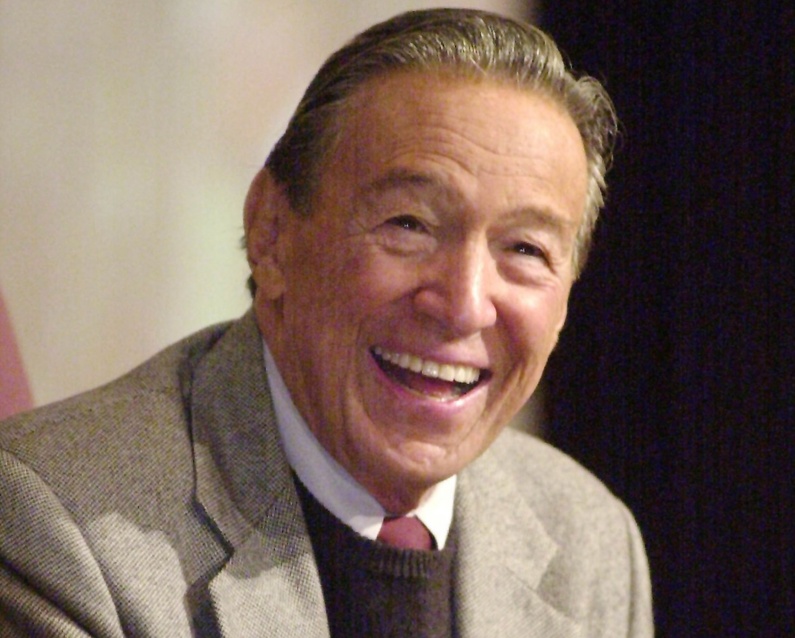
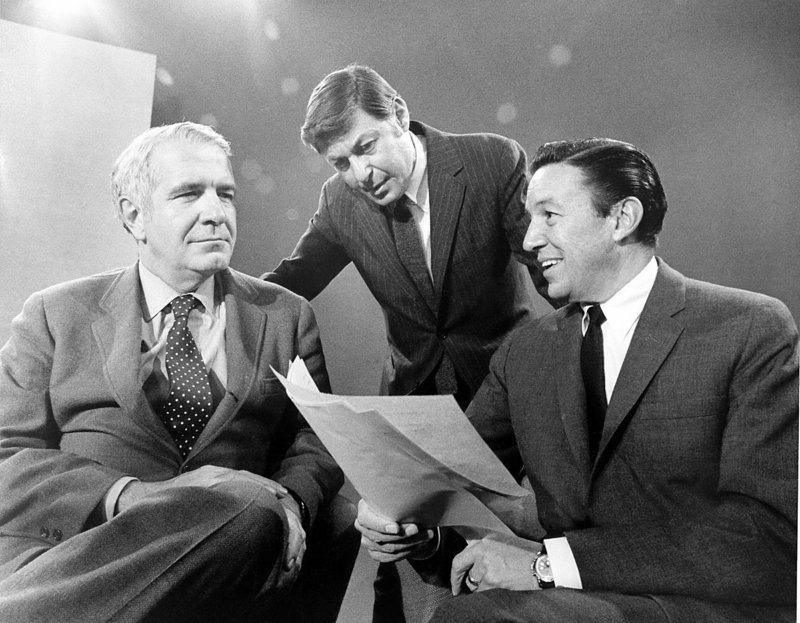
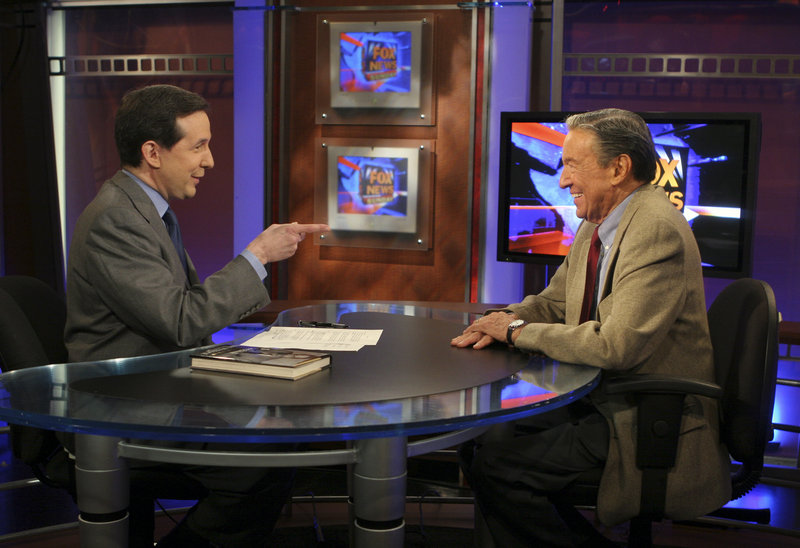
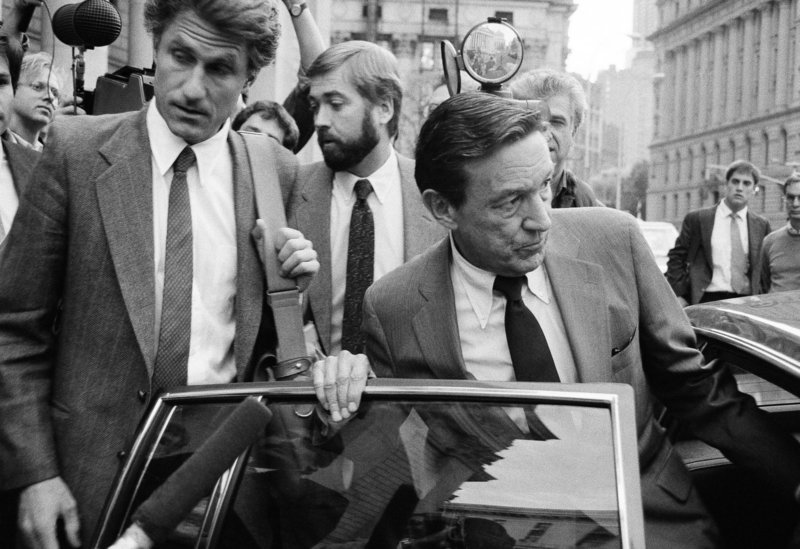
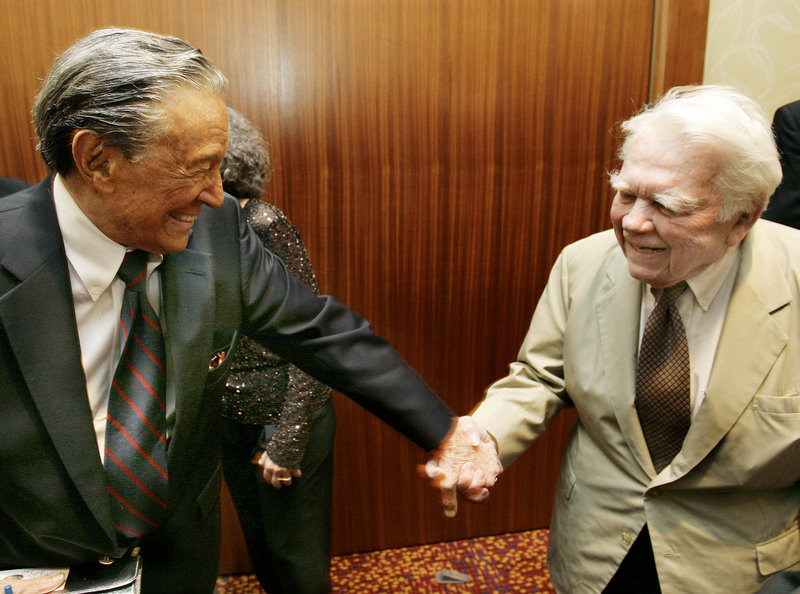

Success. Please wait for the page to reload. If the page does not reload within 5 seconds, please refresh the page.
Enter your email and password to access comments.
Hi, to comment on stories you must . This profile is in addition to your subscription and website login.
Already have a commenting profile? .
Invalid username/password.
Please check your email to confirm and complete your registration.
Only subscribers are eligible to post comments. Please subscribe or login first for digital access. Here’s why.
Use the form below to reset your password. When you've submitted your account email, we will send an email with a reset code.